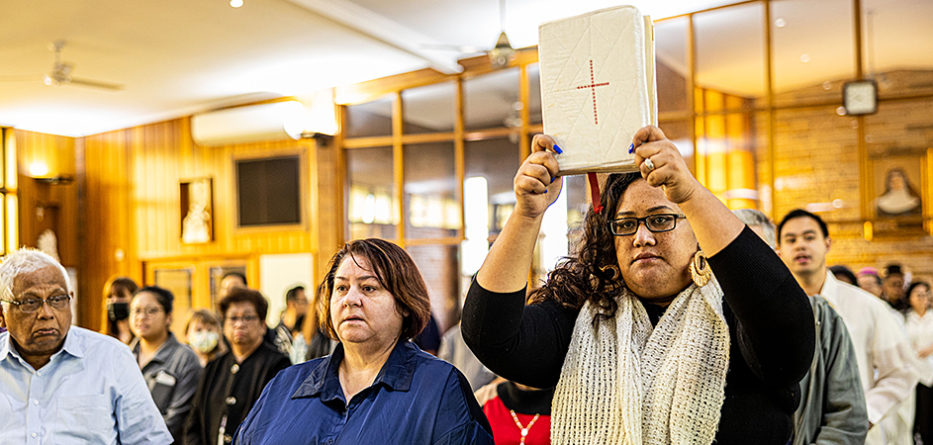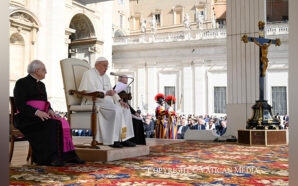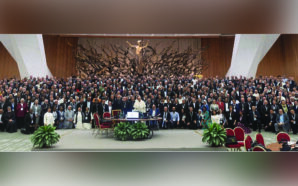Francis reflects on 50 years since Paul VI issued his motu proprio, Ministeria quaedam, that defined the ministry of lector and acolyte as lay ministries
On the occasion of the 50th anniversary of Paul VI’s motu proprio “Ministeria quaedam“, Pope Francis has called on formal dialogue with bishops’ conferences about the promotion of the church’s ministries.
“Every ministry is a call by God for the good of the community,” Francis wrote in a message published August 24 reflecting on Paul VI’s motu proprio.
A ministry must be based on the firm foundation that its origin is God working through the Holy Spirit and its purpose is always the common good and the building up of the community, he said.
In 1972, Paul VI issued his motu proprio, Ministeria quaedam, that changed the terminology of “minor orders” to “ministries” and defined the ministry of lector and acolyte as lay ministries.
Following an obscure precedent set by the Council of Trent, he added that “Ministries can be entrusted to the lay Christian faithful; accordingly, they do not have to be reserved to candidates for the sacrament of Orders” (MQ III).
To mark the anniversary, Pope Francis expressed his desire to begin a dialogue with bishops’ conferences “in order to be able to share the richness of the ministerial experiences that in these fifty years the Church has lived both as instituted ministries (lectors, acolytes and, only recently, catechists) and as extraordinary and de facto ministries.”
The aim is “to be able to listen to the voice of the Spirit and not halt the process — being careful not to want to force (the process) by imposing choices that are the fruit of ideological points of view — I believe that it is useful to share experiences over these past years, all the more so during this season of the synodal journey,” Pope Francis wrote.
“That experience can offer valuable indications to arrive at a harmonious vision of the question of baptismal ministries and thus continue along our journey,” he said.
Pope Francis said that Paul VI’s motu proprio not only renewed the discipline of the minor orders and the subdiaconate, “but offered the Church an important perspective that was able to inspire further progress.”
“The issue is of fundamental importance for the life of the Church”
Pope Francis has already written two apostolic letters addressing the issue — the first, “Spiritus Domini” published on 10 January 2021, allowed women to participate in the Lectorate and Acolytate ministries.
The second, “Antiquum ministerium” published 10 May, 2021, instituted the ministry of Catechist.
“These two interventions,” he said “should not be interpreted as replacing the previous doctrine, but as a further development made possible because it is based on the same principles – consistent with the reflection of the Second Vatican Council” that had inspired Paul VI.
Paul VI, following requests of many Council Fathers, had 50 years ago “granted the bishops’ conferences the possibility of asking the Apostolic See for the establishment of those ministries considered necessary or very useful in their regions. Even the ordination prayer for bishops, during the intercessions, indicates among its principal tasks, that of organizing ministries.”
Pope Francis explains that “the issue is of fundamental importance for the life of the Church: in fact, there is no Christian community that does not express ministries.”
Thus, “any ministerial structure that arises from this discernment is dynamic, lively, and flexible like the action of the Spirit: it must be rooted in it ever more deeply lest dynamism become confusion, liveliness be reduced to extemporaneous improvisation, flexibility be transformed into arbitrary and ideological adaptations,” he said.
These are complex issues, which, “certainly need to continue to deepen,” but without “pretending to define and resolve them in order to then be able to live ministeriality,” because acting in this way “most likely we would not be able to go very far,” Francis wrote.
Reproduced with permission from La Croix International.








